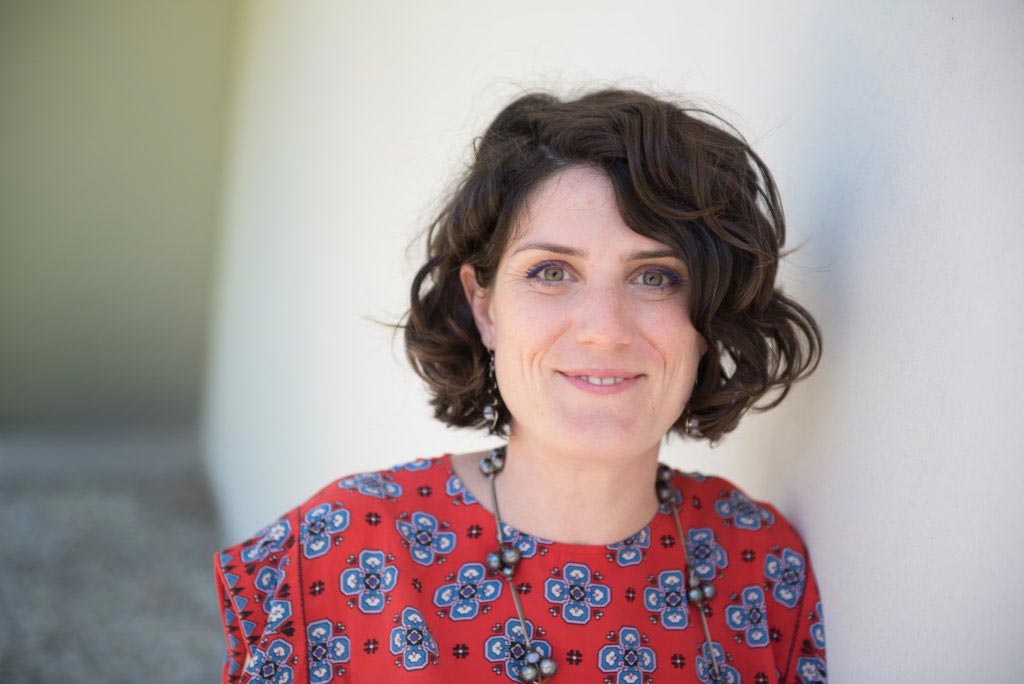
GENENTECH, USA
Christine Moussion was a Postdoc at IST Austria. She now works as a group leader for Genentech in Califonia. At IST Austria Christine Moussion was in Michael Sixt’s group.
In an interview with Daniela Klammer and Kathrin Pauser which took place during the Science and Industry Day 2018 she answered some interesting questions about her work and how her career developed.
Watch the corresponding video on YouTube
On my business card is my first name and my last name, my position: I am a scientist in cancer immunology at Genentech in San Francisco, my address and my phone number. 😉
I lead a research team in a big pharma company I work in basic science and in the same time I lead 3 to 4 people in the basic science and at the same time I do some drug discovery at the same time. I think the coolest thing about my job is it is all about science. Basic science or applied science so to develop new treatment and also that there is no limitation. So we can do whatever we want in term of support facilities money so I think it is really to have great science and great support.
In the future I think I will go where the science will bring me. All I have worked for now is where I am happy to work on and I hope I can contribute to the development of new treatment for disease and at the same time make great basic science discoveries. And have fun in science.
I trained as a bioengineer in biotechnology and I worked for a short time in a start up in drug development. Then I came back to university because I decided to step back and to learn a new field which was immunology which I got very passionate about. So I did a PhD in immunology and a postdoc at IST Austria in Michael Sixt’s lab. I worked at the migration of leucocytes and developed a new bio imaging technic and assets that I can now apply in my current job. So I looked at immune cells recruitment in tumor and how to stimulate the recruitment of this leucocytes to improve cancer immune therapy.
IST Austria gave me the freedom to explore science the edges of science of my field like working at the interfaces between immunology and bio imaging for example. The platform of bioimaging is amazing and is always stimulating the progress, the development of new techniques. My mentor played the biggest role. He gave me freedom and he gave me support in terms of looking for jobs by connecting with his network and confidence.
IST was my first international experience. So I learned English here because I came from France. So now that I am living in the US the Americans say that I am speaking with a German accent. I am not sure about that I think I still have a strong French accent. Here I connected with a different type of culture and a different kind of science, really multidisciplinary, so I connected with Mathematicians or physicists and that’s what I liked at IST.
If I rely on my experience I would say: follow the science. See where the science will bring you. But take action you are the actor of your career. You have to make decisions if you need to step back if you need to change direction. You have to keep being proactive. Work hard surely for papers. Papers can get you everywhere. Go to conferences, connect to the leaders in your field to see where your field is moving and it’s also easier if you want to work in industry if you already know people working there. So if people know you and they know your way of thinking and the science you want to develop it is easier to get in later on. Chose a good mentor, a supportive mentor is crucial for a great future job.
I have two probably. When I was living in the guest house and also later I was able to cook French recipes and I was able to share French food with my colleges and I could learn recipes from different cuisine like Indian and I loved that a lot. And I also loved the postdoc retreat when we were going to the mountain for skiing. I think that were the two moments where I connected and I made really good friends, really strong connections. So that is probably my favorite moment at IST.